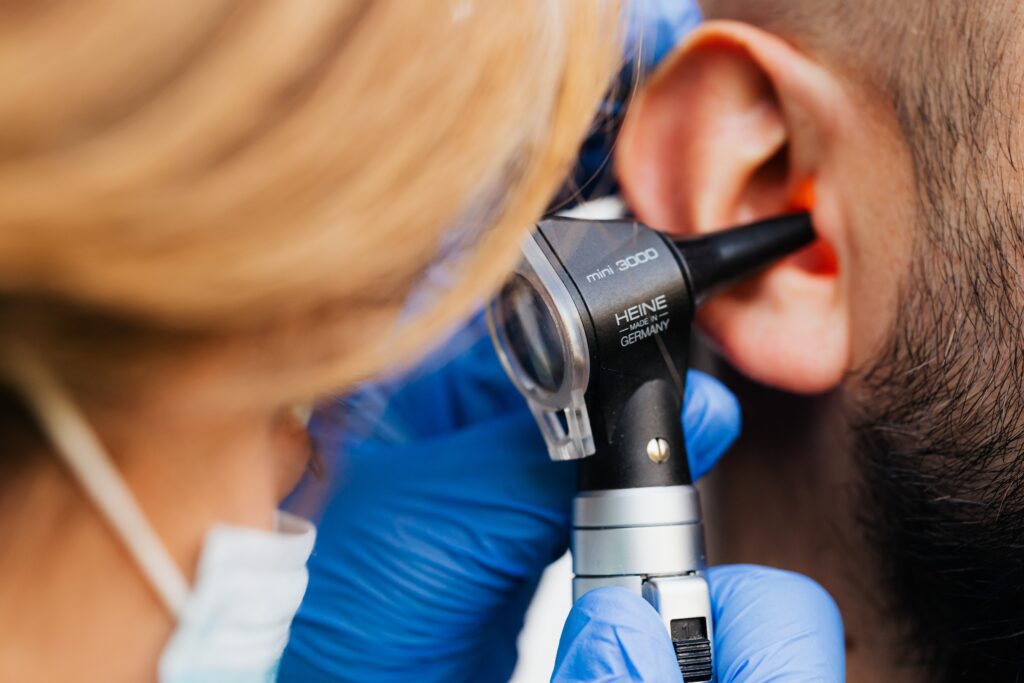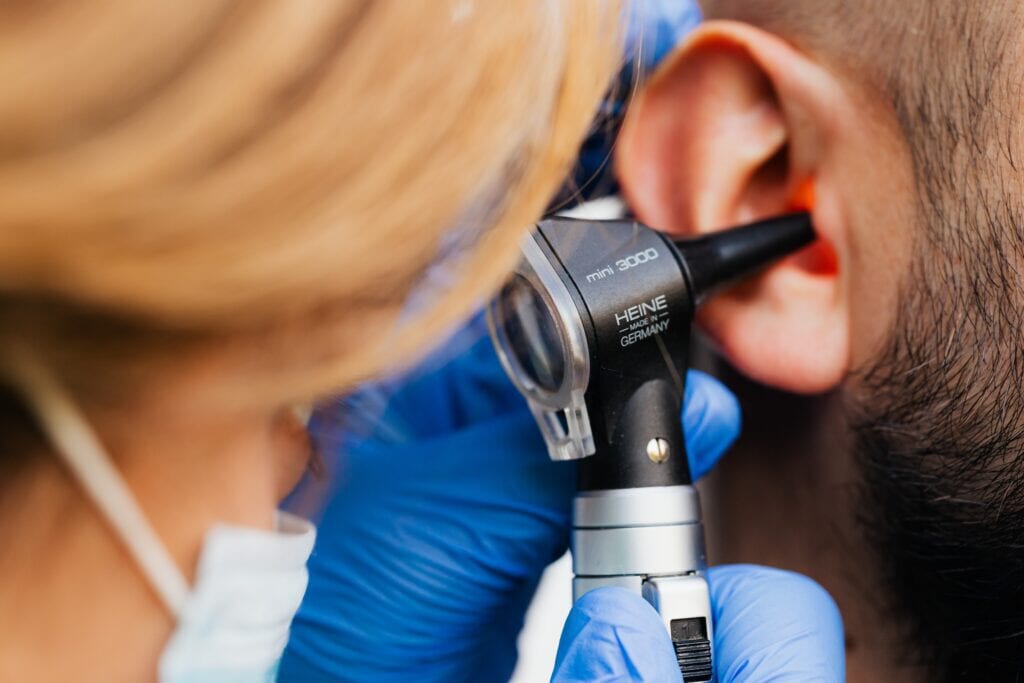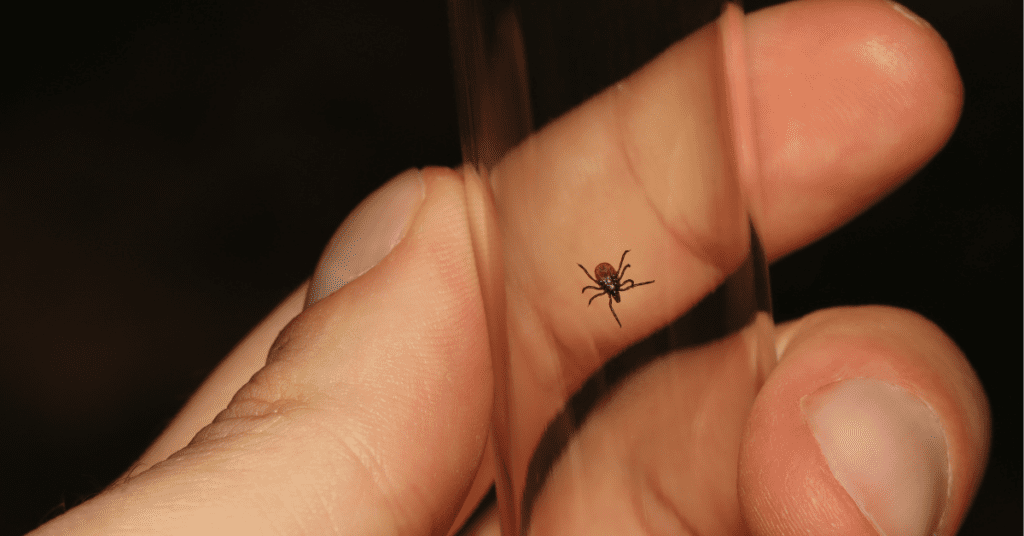Tinnitus is a hearing-related condition, while Lyme disease is a vector-borne illness (or an illness brought about by an infection from a host), and the two conditions may not appear to be related. In this article, we will take a closer look at both tinnitus and Lyme disease to uncover how people may develop tinnitus, how they may get infected with Lyme disease, and how these conditions may intersect.
What Is Lyme Disease?
As of the time of this writing, Lyme disease is the most common vector-borne illness in the United States. A vector-borne disease is a disease spread by blood-feeding insects, such as mosquitos, fleas, and ticks – the latter of which is responsible for the transmission of Lyme disease. The black-legged tick is the type of tick associated with Lyme onset, and presently, the reported cases stand at approximately 300,000 per year.
"Treble Health helped me reduce my tinnitus by about 80%, and now I can live my life again!"


"Treble Health helped me reduce my tinnitus by about 80%, and now I can live my life again!"
– Steve D.
Book a free consultation to learn which Treble Health solution is right for you. Join Steve and thousands more who have found lasting tinnitus relief.
Although the transmission of Lyme disease is well-understood, the mechanism behind Lyme’s ability to “hide” in the body remains illusive which is why early diagnosis is very important. The bacteria that causes Lyme is a spirochete, or a corkscrew-shaped bacterial agent that has the ability to make its way through the body’s tissues more easily than some other types of bacteria – giving it the ability to spread quickly.
Causes Of Lyme Disease
Lyme disease is caused by the bacterium Borrelia burgdorferi and is transmitted to humans through a tick bite. Lyme can be found in both black-legged deer ticks and the Western black-legged ticks. Although there is some debate as to the amount of time required for the bacteria to transfer from an infected tick to a new host, it is widely accepted that 50% of ticks carry the bacteria. Regardless, any tick bite should be treated quickly and carefully.
Who Is At Risk For Getting Lyme Disease?
Ticks prefer to live in wooded areas and long grasses, and ticks carrying Lyme bacteria have been reported in nearly all of the U.S. states, and in both Europe and Asia. The areas most prone to high tick populations include the Northeast U.S., the upper Midwest, and the Northwestern states. Consequently, people living in wooded or grassy parts of these areas are at greater risk of encountering Lyme-carrying ticks and developing symptoms.



Lyme disease can be found in people of all ages and backgrounds, but those who live in areas prone to high tick populations and those who work outside are at a higher risk. People with pets who roam both indoors and outdoors may also be at greater risk of having ticks, as animals can easily carry ticks into the home from outside. Therefore, it is important to not only perform regular “tick checks” on people, but also on pets.
Symptoms Of Lyme disease
Symptoms of Lyme disease are typically separated into four stages, according to the amount of time that the infection has been in the body. These stages progress as follows:
Early Indicators (Stage 1)
- A bulls eye rash at the site of the tick bite
Several Days Later (Stage 2)
- Fever
- Headache
- Fatigue
- Stiff neck
- Unexplained aches and pains
- Poor appetite
- Swollen glands and lymph nodes and further rash
Should any of these symptoms appear following a bite from a tick, seek immediate medical treatment to ensure that you receive antibiotics in enough time to effectively target infections.
Weeks To Months Later (Stage 3)
- Meningitis
- Bell’s Palsy
- Cardiovascular issues (myocarditis, in particular)
- Eye issues (red, itchy, or otherwise inflamed eyes
Because bacteria is able to pass through the bloodstream and maintain an prolonged presence in the body, an infected bite without proper treatment can cause permanent or long-term neurological damage and result in mental and emotional symptoms such as depression and anxiety.
Months To Years Later (Stage 4)
- Loss of muscle tone
- Memory loss
- Sleep disturbances
- Joint issues/Arthritis
- Severe headaches
In this stage, although it is still possible to treat the infection, it becomes significantly more difficult and there may be far more symptoms that need to be addressed. Additional unexpected symptoms, thought to be the result of other concurrent infections, may also develop. Those may include hearing loss, dizziness, and chronic fatigue.
Can Lyme Disease Cause Inner Ear Problems?
Hearing health can be impacted by an infected insect bite. Because Lyme disease bacteria can quickly travel to different parts of the body, it can cause damage to the ear, leading to hearing loss, hyperacusis (extreme sensitivity to normal levels of sound), or tinnitus. If left untreated until the later stages, about half of the Lyme disease cases will result in hearing difficulty. Some of those cases may also include ringing sound associated with tinnitus, infection, sensitivity, and more. If Lyme disease results in hearing loss, treatment with hearing aids to correct the loss of hearing may be needed. For those who develop tinnitus, Tinnitus Retraining Therapy (TRT), Cognitive Behavioral Therapy (CBT), and sound therapy may be recommended.



When looking at the effects of Lyme disease on the auditory system and hearing health, one study found that some of the most common side effects included tinnitus, vertigo, dizziness, and single-sided sensorineural hearing loss. While people who have been bitten by a tick may not initially think of damage to their ears, the disease can lead to a host of issues that are not limited to the immediate site of the bite.
Lyme Disease Treatment
The standard treatment for the disease is a round of antibiotics dispersed over a couple of weeks. When this tick borne illness is not addressed immediately, it can have long-term issues including mood changes, damage to the ears and eyes, muscle pain, and more, all of which may not initially be present. Although prevention is best, medication is available to treat the infection caused by the Lyme bacteria and to prevent the long-term consequences.
How Do I Prevent Lyme Disease?
While symptoms can be severe and lead to serious complications that can negatively impact a host of bodily systems, there are plenty of ways to effectively prevent tick bites. These include the following:
- Using insect repellent that contains DEET
- Wearing light-colored clothing, including socks, and wearing long-sleeved shirts, pants tucked into socks, and closed-toe shoes
- Regularly checking for and promptly removing ticks
- Showering after being outdoors
- Checking pets regularly for ticks, including after being outside
- Applying pesticides to high-traffic outdoor areas
- Reducing tick habitats using effective barrier methods, including gravel and mulch
Only one of many vector-borne diseases, there is far more to this tick borne illness than simple flu like symptoms. Neck pain, sensitivity to ordinary sounds, ongoing ringing in the ears, and further susceptibility to other diseases and conditions can all come about as a result of a small bite. It is, therefore, essential to prevent bites whenever possible, know the signs of having been bitten by an infected tick, and speak with doctors about any symptoms that may arise following a known or suspected bite as soon as possible.
I Have Tinnitus And/Or Hearing Loss From Lyme Disease – Now What?
While ear related symptoms, such as hearing loss or tinnitus, can be frustrating, help is available, even when an infected bite has not been fully treated or healed. Patients with tinnitus, hyperacusis, and hearing loss can benefit from a number of interventions designed to lessen the effects of these conditions. The most common interventions include:
- Hearing aids. Whether your hearing loss or tinnitus is caused by changes to blood flow or damage caused by exposure to louder sounds, hearing aids can help improve communication and lessen tinnitus perception.
- Tinnitus Retraining Therapy (TRT). TRT is a method used to treat tinnitus by helping tinnitus patients to develop healthy coping responses to their symptoms. It goes one step beyond CBT by using both conditioning and CBT-like interventions to encourage people with tinnitus to recognize emotions as they arise, and practice healthy intervention strategies when anxiety or discomfort begins to escalate.
- Sound therapy. Sound therapy, which is also a part of TRT, uses sound to help minimize the perception of tinnitus, allowing patients to habituate (get used to) it. One of the simplest treatments out there, sound therapy can be started with an audiologist, and implemented on your own with regular check ins.
- Cognitive Behavioral Therapy (CBT). CBT uses mental health support to help improve emotional and mental reactions to the symptoms of tinnitus. Because these can cause significant distress, a doctor, audiologist, or mental health professional may recommend this type of intervention. When symptoms spike or even slightly increase, anxiety and uncertainty can rise, too. A doctor can help develop habits and practices to minimize these issues, which may in turn help soothe some of the distress associated with tinnitus.
For those with tinnitus or hearing loss caused by Lyme or by other issues, there are plenty of hearing loss interventions and tinnitus treatments that can improve quality of life of patients suffering from these conditions.
Next Step: Book Free Consultation
- 75% of patients reduced their tinnitus within three months after following our recommendations.
- "I feel like Treble Health literally gave me my life back." - Randy S. (verified customer)
- Join thousands of people who have reduced their tinnitus after scheduling a free consultation.


















